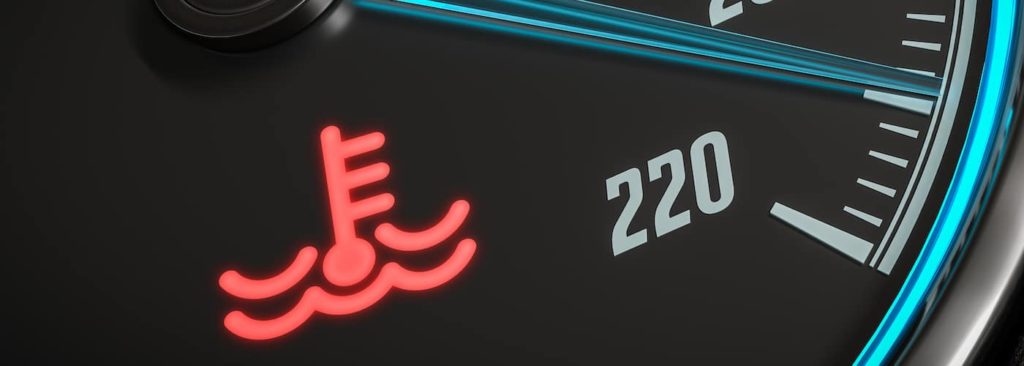Your Volkswagen is designed to deliver reliable performance and a smooth ride. However, if it starts overheating, it’s a sign of an underlying issue that needs immediate attention.
Driving an overheating vehicle can lead to severe engine damage, so understanding the causes and solutions is crucial. Let’s explore why your Volkswagen might be overheating and how to fix it.
Common Causes of Overheating in a Volkswagen
-
Low Coolant Levels:
-
Coolant plays a vital role in keeping your engine at the right temperature. Low coolant levels, often due to leaks or evaporation, can cause the engine to overheat.
-
-
Thermostat Issues:
-
A faulty thermostat that’s stuck closed will prevent coolant from circulating through the engine, leading to overheating.
-
-
Radiator Problems:
-
A clogged or damaged radiator can’t effectively dissipate heat. Similarly, a malfunctioning radiator fan can cause overheating, especially during idling or in traffic.
-
-
Water Pump Failure:
-
The water pump ensures that coolant circulates throughout the engine. If it’s failing, coolant flow is restricted, resulting in overheating.
-
-
Blocked Coolant Passages:
-
Dirt, rust, or debris can block coolant passages in the engine, reducing the system’s efficiency.
-
-
Blown Head Gasket:
-
A blown head gasket can cause coolant to mix with engine oil or allow exhaust gases to enter the cooling system, both of which lead to overheating.
-
-
Broken Serpentine Belt:
-
The serpentine belt drives the water pump in many vehicles. If it breaks, the cooling system won’t function properly.
-
Signs Your Volkswagen Is Overheating
-
Temperature gauge rising above normal
-
Steam coming from under the hood
-
Coolant warning light illuminated
-
A sweet smell of leaking coolant
-
Engine performance issues, like reduced power or stalling
How to Fix an Overheating Volkswagen
-
Check Coolant Levels:
-
Inspect the coolant reservoir and refill it if the level is low. Use the type of coolant recommended for your Volkswagen.
-
-
Inspect the Radiator and Fan:
-
Look for leaks, clogs, or a malfunctioning radiator fan. Replace or repair any damaged components.
-
-
Test the Thermostat:
-
Remove and test the thermostat to ensure it opens and closes properly. Replace it if necessary.
-
-
Examine the Water Pump:
-
Look for leaks or noises that indicate a failing water pump. Replace it if it’s not working correctly.
-
-
Flush the Cooling System:
-
A coolant flush can remove debris, rust, and buildup that may block coolant passages.
-
-
Address a Blown Head Gasket:
-
If you suspect a blown head gasket, consult a professional mechanic. This issue requires specialized tools and expertise to repair.
-
Preventing Overheating in Your Volkswagen
-
Perform regular coolant flushes as part of routine maintenance.
-
Inspect and replace the thermostat and water pump when recommended.
-
Monitor the radiator and cooling fan for wear or damage.
-
Keep an eye on the temperature gauge during extreme weather conditions.

Credit: www.orlandovwnorth.com
Why is My Car Overheating When I Have Enough Coolant?
If your car is overheating, even though you have enough coolant in the system, there could be a few different reasons.
One possible explanation is that your radiator fan isn’t working properly. The radiator fan helps to move air through the engine and keep it cool. If the fan stops working due to an electrical problem or a broken belt, then not enough air will flow past the radiator, leading to an increase in temperature.
Another possibility is that your cooling system has become clogged with debris such as dirt and grime which can prevent coolant from circulating efficiently throughout your engine block.
Lastly, it’s possible that one of the hoses leading into or out of the radiator has developed a leak which can cause the coolant level in your system to drop below optimal levels resulting in overheating issues.
No matter what issue may be affecting your vehicle’s cooling system, make sure to get it checked out by an experienced mechanic as soon as possible so they can identify and repair any underlying problems before too much damage occurs!
Why is My Car Suddenly Overheating?
If your car is suddenly overheating, it can be a cause for alarm. Overheating is usually caused by an issue with the cooling system, such as a lack of coolant or air in the system, or damage to one of its components.
If you notice that your engine is running hotter than usual, there are several things you should do right away:
- check the radiator and hoses for any leaks;
- if necessary add water or antifreeze to bring it up to the proper level;
- feel around for any hot spots on parts of the engine that may indicate a leak;
- and visually inspect all other components like belts and fans for signs of wear.
Additionally, make sure to get your vehicle checked out by a trained mechanic so they can diagnose exactly what’s causing the problem – whether it’s something simple like an empty coolant reservoir or something more serious like a damaged head gasket – in order to ensure that it gets taken care of properly before further damage occurs.
Engine Overheating! No Coolant Leaks & Coolant Level OK – Volkswagen Audi 1.6 2.0 TDI 1.8T 2.0T
Volkswagen Overheating Light
The Volkswagen overheating light is a sign that your engine has reached a temperature that exceeds the ideal range.
This can be caused by a variety of issues, such as an insufficient coolant level, a clogged radiator or thermostat, or even something more serious like an internal engine problem.
If you see the Volkswagen overheating light illuminated on your dashboard it’s important to take action right away and have the issue checked out by a qualified mechanic before further damage occurs.
Conclusion
This blog post has provided a helpful overview of the potential causes and solutions for when your Volkswagen is overheating. It’s important to stay aware of any signs that your car may be having trouble, so you can act quickly to diagnose and repair the issue.
From issues with coolant levels or leaks, to faulty thermostats or water pumps, there are many possibilities that could cause your vehicle to overheat.
Fortunately, keeping up on regular maintenance can help you avoid some more serious problems down the line.



